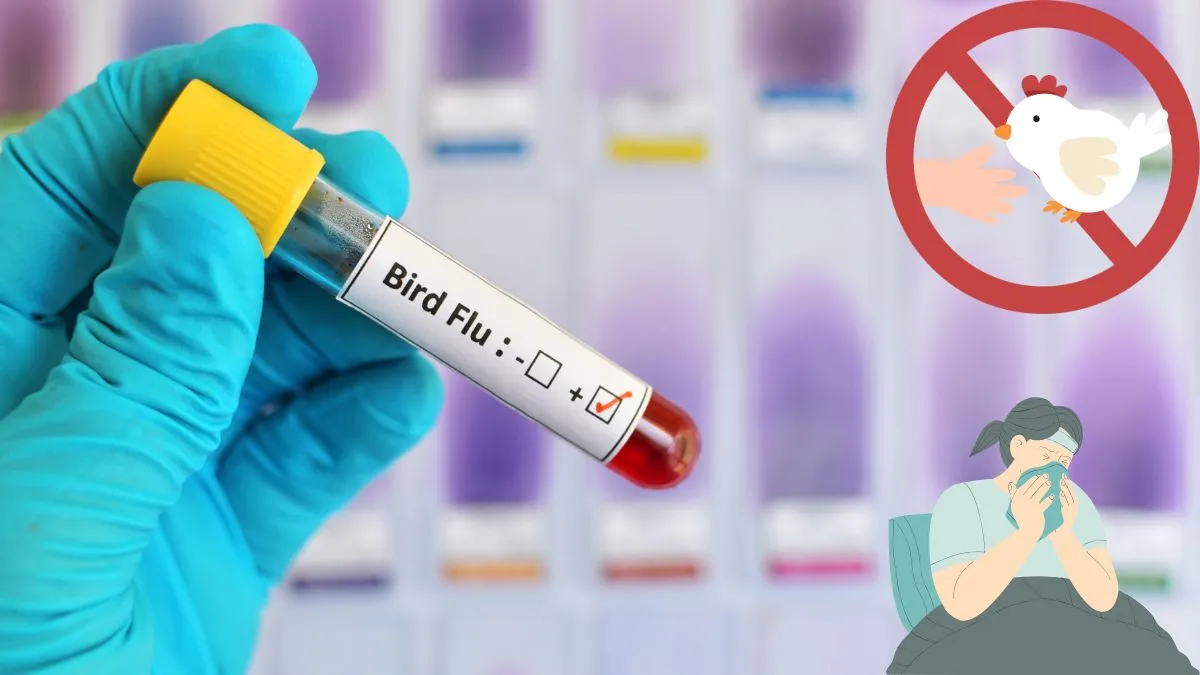- By Bornika Das
- Wed, 20 Aug 2025 02:40 PM (IST)
- Source:JND
Uttarakhand Bird Flu Outbreak: In two districts namely Udham Singh Nagar and Bageshwar in Uttarakhand, authorities have confirmed an outbreak of avian influenza or H5N1. In Udham Singh Nagar’s Kichha area, over 2,000 birds were culled after sudden deaths at a poultry farm. Reportedly, samples were tested at the Indian Veterinary Research Institute in Bareilly, which confirmed the presence of the highly contagious H5N1 virus. As per the news reports, one-km radius around the affected farm has been sealed and declared “infected zone” with a 10-km “surveillance zone” set up around it. Samples from other poultry farms have also been collected and dispatched for testing.
Ban On Poultry Transport
After the outbreak of bird flu in Uttarakhand, the district administration imposed a week-long ban on the transportation of poultry, meat and eggs from Uttar Pradesh, where the cases were reported in Rampur district. Also, a similar outbreak has been witnessed in a few villages of Bageshwar where dozens of chickens died under mysterious circumstances. Authorities have decided to go forward with the culling of all poultry within a one-kilometre radius and have also banned poultry and egg supply from other districts.
Although the situation seems to be under control, the district administration says that they are taking preventive measures and precautionary steps for safety of the residents against the infection.
What Is Bird Flu?
Bird flu or avian influenza is an infection that is caused from a type of influenza virus that spreads in birds and other animals. Sometimes, humans also catch the bird flu infection from the infected animals. In extreme rare cases, it spread from person to person.
Bird flu often happens when there is an oubreak affecting large numbers of birds or other animals. It becomes concerning when it increases the risk of human infection, which affects wildlife and reduces the food supply.

Bird Flu Symptoms And Prevention (Image Credits: Canva)
H5N1 Bird Flu Symptoms In Humans
Pink eye or conjunctivitis
Fever
Fatigue
Sore throat
Cough and cold
Stuffy or runny nose
Muscle aches
Nausea and vomiting
Diarrhoea
Breathlessness
How Does Bird Flu Spread To Humans?
The influenza A virus, which is also known as H5N1 in humans causes bird flu in humans. Humans get bird flu when they come in contact with an infected animal’s body fluid, like spit (saliva), milk, respiratory droplets or poop (feces). Humans can breathe it in from small dust particles in animal habitats or get it into their eyes, nose or mouth after touching body fluids. However, people don’t get flu from eating properly cooked poultry or eggs or from drinking pasteurized milk. Bird flu usually infects the upper respiratory tract and lungs of humans but also spread to other part of the body, including brain.
Bird Flu Prevention Tips
Wear protective clothing like gloves, a mask and goggles.
Wash hand frequently when handling birds, wild animals and livestock or after being in areas they live.
Avoid working with animals who are sick or who have been exposed to avian influenza.
Take off the shoes before entering home if you have been in areas where birds live, as it reduces the risk of spreading bird droppings.
Do not touch or drink unpasteurised milk.
(Disclaimer: This content, including suggestions and advice, provides generic information only. It is in no way a substitute for qualified medical opinion. Always consult a specialist or your own doctor for more information before making any drastic changes in your lifestyle.)
